Easing Measures in Croatia on March 1: Not Everything Will Open, Says Božinović
February 22, 2021 - At the National Civil Protection Headquarters' press conference on Monday, Interior Minister Davor Božinović spoke about easing measures in Croatia on March 1.
Jutarnji List reports that in the last 24 hours, 72 new COVID-19 cases were recorded, and the number of active cases in Croatia today is 2111.
Among them, 792 patients are in hospital, of which 68 are on a ventilator.
20 people died. The average age of the deceased is 76 years. 166,146 doses of vaccine had been used, and 108,311 people were vaccinated. For 57,835 people, the vaccination was completed.
HZJZ director Krunoslav Capak reported on the 14-day incidence per 100,000 inhabitants.
"We have 72 new cases. A week ago, there were 68 new cases, and the week before, 71 new cases. The mild beginning of the plateau of an equal number of patients or a very slight increase continues. We currently have two percent more than the week before. The current incidence for the Republic of Croatia in 14 days is 111.2. The lowest incidence is in the County of Istria and the highest in Dubrovnik-Neretva County. In terms of incidence, Croatia ranks 3rd in the EU. Only Denmark and Finland have the lowest, and the Czech Republic has the highest in the EU: 1109.7. The total mortality rate per million inhabitants is 1331.9, and we are ranked 19th out of 27 EU countries. The share of positives in those tested today is 3.2 and for the last 14 days, 6.0. So far, HALMED has received 927 reports of suspected side effects, of which 822 are on the Pfizer vaccine, 48 on the Moderna, and 57 on the AstraZeneca," Capak said.
Capak spoke about the shipments of vaccines expected in Croatia.
"This week, we need to receive 23,400 doses of Pfizer, 16,800 Moderna, and 52,000 AstraZeneca. Moderna has announced that it will deliver those 16,800 doses on February 25. Of all the others, we have announcements for March, only from Moderna. We do not have dates, but they announced about 55,000 doses during March. We should receive another 508,630 doses of vaccine by the end of March."
Minister of Health Vili Beroš spoke about 20% fewer examinations and procedures in hospitals this year.
"It ranges from 19-28%. We learned in this spring wave and adjusted the health care system. Everywhere in the world, health capacities are focused on solving Covid problems. We had to operate one entire facility to provide COVID-19 protection to positive patients and relieve all other health facilities. I think we succeeded in that. We appeal to health institutions and patients to respond to preventive examinations. This is of fundamental importance. Many avoid these examinations for fear of getting infected in hospitals, which is not good. It is important to have regular preventive check-ups. And the general population does not respond in the desired number to preventive examinations. We are thinking about it, and we have adjusted the health care system so that as many institutions as possible provide other health care," he said.
Capak commented on allegations that those receiving the AstraZeneca vaccine will not have to wear masks afterward.
"The type of immunity that protects our mucous membrane from the virus, so that it cannot live on it, is a different type of immunity than the one that develops after vaccination. AstraZeneca was the first to publish a study, and their vaccine also protects against virus transmission. And if the vaccine develops immunity, we weren’t sure if that person could receive the virus on the mucosa and transmit it. That’s why we recommended wearing a mask even after vaccination. Whether other vaccine manufacturers will conduct such studies, we do not currently know. We wouldn’t tell anyone now not to wear a mask; everyone should wear a mask. Until the transmission of the virus and the number is significantly reduced, it is recommended for everyone to wear masks," said Capak.
Božinović commented on the possibility of easing measures from March 1.
"Talks have already begun this week. It all depends on the epidemiological situation, which is good despite these particular increases. The Republic of Croatia is at the top of the countries when it comes to low incidence. We will talk to the ministers. Our goal is the same, to normalize life as much as possible, to start as many economic activities as possible. Certainly, on March 1, we will not open everything as before the epidemic, but if these trends continue, the possibility of certain concessions certainly exists. I wouldn’t want to be more specific here now. We monitor the situation locally as well. When we talk about the counties' demands, that decision is always a decision of the National Headquarters. We are not against initiatives, but for each specific initiative from the county level, the decision will be made by the National Headquarters."
Capak commented on the slight increase 4 days in a row compared to the week before.
"Four days is not enough to talk about the trend. This is a slight increase from the figure a week ago. Now we can think that it is some oscillation, or we can say that it is the stagnation of the fall that we had so that the plateau has leveled off and the numbers are rising. We will see this over the next few days; we can hope it is a slight oscillation after which the numbers will fall."
Capak commented on the start of mass vaccination in Zagreb.
"I don't know about any problems. From the beginning, the possibility of getting vaccinated in organizations or at checkpoints has been included. Some have reached the stage of using checkpoints. In Zagreb, the transition to the second phase was a bit late, and now we got a little more vaccine, and the first phase is over. HZJZ has decided to make vaccination actions at checkpoints. Tomorrow we will vaccinate in Mihaljevac and the City of Zagreb in NZJZ Andrija Štampar. Patients from the list of health centers will come; 60 patients have been ordered every half hour. We estimate that we will vaccinate 900-1000 people."
Journalists asked the Headquarters about the tourist season and testing.
"It was discussed that those who return to their countries should be allowed to do PCR in Croatia to cross the border. We will try to organize it again this year during the season, and there is still time until then. Whether it will be at the airport or somewhere else remains to be seen. We think we will then have enough free capacity for PCR tests. There is still no EU country that recognizes rapid antigen tests for crossing the border, "Capak said.
Božinović continued.
"Numerous conversations are taking place on this, at all levels. There will be a European Council meeting soon. The Headquarters is constantly in communication with the Ministry, and we have planned meetings on this topic. This is just one of the issues we will discuss."
Reporters asked Božinović about the possible concessions on March 1.
"We are probably one of the most open EU countries, and the fact is that there is not much we talk about yet. Of course, when we talk about restrictions, some relate to some activities that are already open and take place under certain circumstances. I think it is becoming clear to everyone that our model from day one was that we need to be rational, put everything in the context of the overall epidemiological situation to function as much as possible, and not make decisions that we will soon change. We are all affected in different ways, and we all suffer because of it. Solidarity could and should now be increasingly oriented towards becoming aware of the risks and problems that the epidemic brings to certain sections of the population. The fact is that the most at risk are the elderly, the chronically ill, and they are certainly not the ones looking for measures to be eased. When they give in, they are in the group of those most at risk. That’s why everyone needs to see what they can do to protect the most vulnerable. They need to take care of themselves, adhere to measures, and insist that everyone who comes close to them, especially younger family members, adheres to the measures. I want to say that different groups need to think for themselves about the epidemic risks. If we achieve a kind of understanding, there will be less and less need to impose something as behavior. The open-close approach is slowly being exhausted."
To read more about COVID-19 in Croatia, follow TCN's dedicated page.
Index: Cafe Terraces Open In Two Weeks If Numbers Stay Low
February 17, 2021 – Indoor sports return and cafe terraces open on Monday 1st March if infection numbers remain low, learns Croatian media outlet Index.
By the time spring arrives, Croatian coffee lovers should be back enjoying their drinks outside their favourite cafe bar. Cafe terraces open on Monday 1st March 2021 if Coronavirus infection numbers remain low and stay on their current trajectory, according to Croatia media outlet Index.
Indoor sports will also return on the same date, with the same stipulation that infection numbers remain low. Having cafe terraces open again cannot come too soon for frustrated business owners. At the moment, they are only permitted to serve coffee to go. According to Index, from on Monday 1st March 2021, cafe terraces open and people will no longer need to congregate on the street outside, in parks or on benches to enjoy their drinks.
“Measures should be further relaxed throughout Croatia as of March 1, including the much-anticipated opening of cafe terraces,” says the portal. Cafe terraces open and other relaxed measures depend on the prerequisite of figures remaining at the level they are at now. “The share of newly infected in the number tested in recent days is below five percent,” Index adds.
Headquarters and the government had already announced that the next round of concessions could be expected in early March.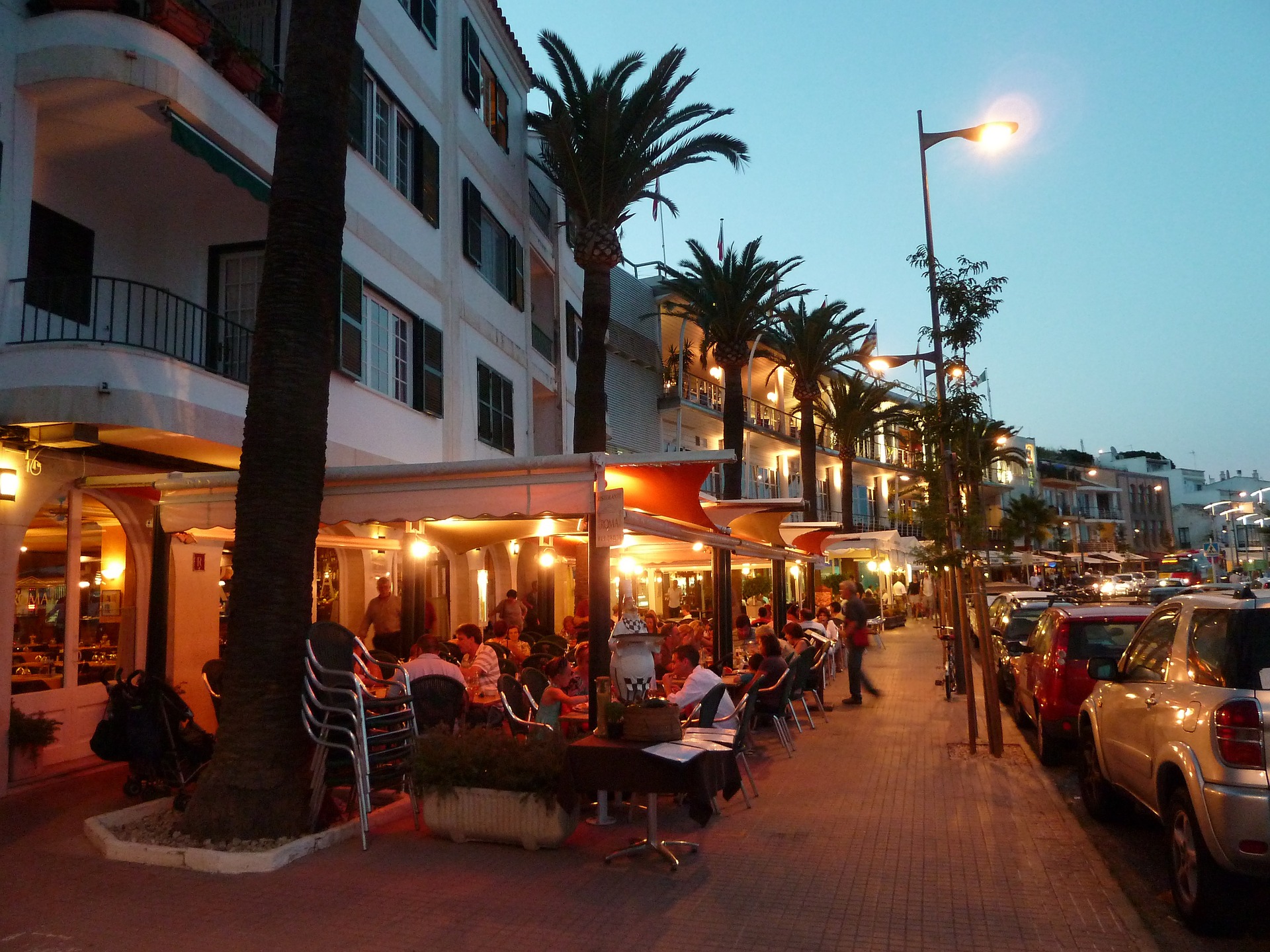 Cafe terraces open in Croatia from March 1st 2021, if Coronavirus numbers remain low, say media outlet Index
Cafe terraces open in Croatia from March 1st 2021, if Coronavirus numbers remain low, say media outlet Index
Croatian cafe terraces open, the interior of cafes and restaurants remain closed
“As we find out, the terraces of cafes and restaurants will definitely open on March 1,” wrote Index. “However, according to information from a source close to the Headquarters, the closed (interior) parts of cafes and restaurants will not be opened. (This) is realistically expected in April at the earliest.”
“Once cafe terraces open, guests will most likely not be able to enter the interiors of cafes and restaurants, except perhaps for the use of toilets, to prevent indoor parts of cafes and restaurants from being used and guests being served there. Closed spaces are still considered by headquarters (to be) an extremely high risk when it comes to the spread of coronavirus.”
Further relaxation of Coronavirus measures: Indoor sports to return
According to Index, although the first information received said that from March 1, only indoor sports for children would be opened, the portal has discovered that instead all indoor sports should be opened, with prescribed epidemiological measures. They remind that, according to current measures, only gyms, swimming pools and contactless individual ball sports are allowed.
Public gatherings / marketplaces / fairs
“There should be concessions when it comes to fairs, but it is not yet completely clear under what conditions,” says the portal. Like supermarkets, open-air and indoor markets are currently permitted to operate. The newly relaxed measures will pertain to similar, but more irregular events at which arts & crafts, books and other goods are on display for sale. The portal say that the vending and consumption of food – which is traditional at such events – will likely not be permitted for now.
“The headquarters is inclined to open fairs where products are sold or exhibited, but the consumption of food and drinks might be limited to prevent excessive gatherings and socializing,” they say.
Relaxation of Coronavirus measures pertaining to private gatherings
“The allowed number of people at various gatherings should not change significantly, only minor corrections are possible,” claims the portal, adding that the current ban on the gathering of people from more than two households may instead be downgraded to a recommendation. The portal reminds that this measure has not been strictly enforced in any way before.
"To give way on March 1, the numbers have to stay at about the level they are now. But the pressure is great - no one wants to keep something closed that should not be kept closed. Most of it is already open, so there remains a narrow circle of what can still be given,” a source close to the Headquarters is quoted as telling Index.
Friction between regional and national authorities over easing of Covid-19 measures
Even if cafe terrace open on March 1st, Index concludes their article by reminding that a disparity between regional and national authorities is still causing some friction. The friction between two north-westerly regions of the country and national headquarters is specifically addressed.
“The Headquarters believes that the announcement of the Istrian Headquarters that they will open the terraces of cafes and restaurants on March 1 was very incorrect. They (national headquarters) say that this opening is planned at the level of the whole of Croatia anyway.”
“However, the decision of the Primorje-Gorski Kotar headquarters, which postponed the opening of bookmakers and casinos in that county, is perhaps even more critically commented on. The government states that the opening of bookmakers (betting shops) and casinos is a purely financial decision and ironically comments that if the Primorje-Gorski Kotar County wants to leave these facilities closed, they should (themselves) cover the costs that will be incurred,” says the Index article.
Index claims that these moves from Istria and Rijeka (Primorje-Gorski Kotar) are regarded in the National Headquarters and the government as politicking and that they are connected with the upcoming local elections.
For the latest travel info, bookmark our main travel info article, which is updated daily.
Read the Croatian Travel Update in your language - now available in 24 languages
Plenkovic on Easing Measures in Croatia: Citizens Should be Rewarded
February 10, 2021 - Andrej Plenkovic spoke about possibly easing measures in Croatia, saying that the Government will present several possible options on Thursday.
After the HDZ presented Davor Filipovic as a candidate for mayor of Zagreb, Prime Minister Andrej Plenkovic also commented on the possible easing of epidemiological measures.
"I think that under these circumstances we should reward our fellow citizens who have shown a great deal of patience and responsibility. We are thinking about several possible steps that we will present to the government tomorrow," said Plenkovic, as reported by N1.
It should be reminded that the presence of the UK COVID-19 variant has been confirmed in Croatia. Whether this will affect the easing of measures, a member of the government's Scientific Council, Ozren Polasek, explained to N1.
"Certainly, we all want to think about giving in because now we understand the psychological and economic cost of this situation in which such measures are in force. I was hoping we would go in that direction. However, the emergence of these strains and the situation from other European countries does not give us much hope, but this is not the end of the world. We are currently in a good situation, and today we discussed how to keep it, regardless of the environment and the fact that a new variant was confirmed today, which was probably with us before. Still, today we have definite confirmation that it is expanding with us," said Polašek.
Asked whether they will ease the existing epidemiological measures, Minister Vili Beroš said today that there is no unambiguous answer to this question and that it will be discussed further. He thinks that individual decisions based on the epidemiological situation will be made in the coming days.
"We will base our decisions on epidemiological data and common sense. We all agree that measures should not be further tightened, but relaxation should be considered very carefully. I think we will make certain decisions that will be based on the situation in the coming days," Beros said.
To read more about COVID-19 in Croatia, follow TCN's dedicated page.
UK COVID-19 Variant in Croatia: First Three Cases Confirmed
February 10, 2021 - The first three cases have been confirmed of the UK COVID-19 variant in Croatia.
Index.hr reports that the first three cases of the UK coronavirus mutation B.1.1.7 were confirmed in Croatia today. The samples were sequenced at the Clinic for Infectious Diseases "Dr. Fran Mihaljevic," the Ministry of Health announced.
According to Ivan-Christian Kurolt, who performed the sequencing with co-workers, these are mutations in the spike protein (HV69/70 deletion, Y144 deletion, N501Y, A570D, P681H, and T716I.
As of January 20, a total of 61 samples were sequenced at the Clinic for Infectious Diseases - 27 from Zagreb and Zagreb County, 16 samples from Brod-Posavina County, eight from Virovitica-Podravina County, six from Sisak-Moslavina County, and four from Bjelovar-Bilogora County.
Mutations were found in samples of a 50-year-old man and a 3.5-year-old child from Zagreb, and a 34-year-old man from Brod-Posavina County.
Epidemiologists from the Croatian Institute of Public Health (HZJZ) have been informed about everything, and they will collect additional epidemiological data from patients and their contacts who are in isolation.
According to the Ministry of Health, all three samples were also sent to the European Centre for Disease Prevention and Control (ECDC) as part of the shipment, which was sent today from the Croatian Public Health Institute with samples from various parts of Croatia.
To read more about COVID-19 in Croatia, follow TCN's dedicated page.
Epidemiologist: At This Rate, Vaccination Goal Won't Be Met Until Autumn
February 9, 2021 – In a Croatian media TV interview, epidemiologist of the Croatian Institute of Public Health Bernard Kaić yesterday said the plan to vaccinate half of the population by the summer will be delayed. He predicted that if Croatia continues vaccination at its current rate, the goal would not be reached until autumn, possibly late autumn
Epidemiologist of the Croatian Institute of Public Health Bernard Kaić, speaking to Croatian media RTL, told them the plan to vaccinate half of the population by the summer will be delayed. The epidemiologist predicted that if Croatia continues vaccination at its current rate, the goal of vaccinating half of the population within the country will not be completed until autumn, possibly late autumn.
"I can't say (by) exactly how much,” he told RTL, regarding how much delay will occur, “because we still don't know how many vaccines we'll get in March. And (how much) after March we (still) have no idea.”
“If this pace continues, it would take four million doses to vaccinate half the population. We won't achieve that until autumn for sure, and it’s late autumn,” the epidemiologist said.
According to an article in Index, the epidemiologist said that, as things currently stand, there will be three vaccines used in Croatia - AstraZeneca, Moderna and Pfizer / BioNTech. They will be used concurrently, with vaccinations from all three available in Croatia at the same time.
When asked which vaccine he would choose to be vaccinated with, the epidemiologist answered that he did not know and that he was glad that he did not have the opportunity to choose. "There was only one offered so I got vaccinated,” said the epidemiologist. “It would be really hard to decide."
When asked why some states have given up vaccinating those over the age of 65 with the AstraZeneca vaccine, the epidemiologist explained that in currently available results from clinical studies the messenger RNA vaccine had proven to be somewhat more effective in preventing mild forms of Coronavirus than the AstraZeneca vaccine. Some of the vaccines work in different ways. However, the epidemiologist ultimately said that it was expected the AstraZeneca vaccine would prove to be effective, it was just that this had not yet been proven statistically.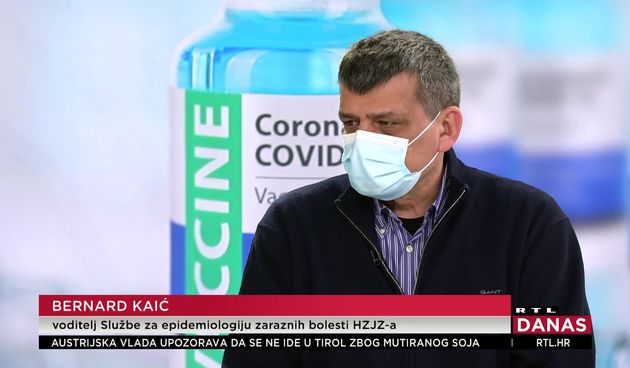 RTL screenshot
RTL screenshot
Later in the interview, the epidemiologist was asked “Due to skepticism towards AstraZeneca, many associations in (Croatia's) border areas plan to take pensioners to Serbia for vaccination. How smart is it to accept such an arrangement?”
The epidemiologist replied; “My only fear is that such organized trips do not turn into corona-trips so that people do not get infected on the way back and forth and do themselves harm. I would wait.”
The three vaccines for which Croatia is currently expecting deliveries are now not the only vaccines available. Speaking in a discussion on the same evening on another Croatian media outlet, HRT, Zlatko Trobonjača, an immunologist from the Rijeka Clinical Hospital, spoke about the Russian vaccine.
"Our country is obviously following the EU and its decisions,” he said. “The EU has entered into talks with Russia. It can be expected that these talks will continue. It is a quality vaccine, it provides high protection.”
"As for the quality of the vaccine, we can see that it is not harmful and it could be used in our country. The EU is oriented towards Western companies. And now, they (the companies) did not stick to the agreement," Trobonjača said, adding that he would be vaccinated with the first vaccine that was made available to him.
Hundreds Gathered at Jarun Party, Zagreb Police Report No Violations of Epidemiological Measures
February 7, 2021 - Hundreds gathered at a Jarun party on Saturday night in Zagreb, though the police have reported no violations of epidemiological measures.
Index.hr reports that a new video showing hundreds of young people gathered in Zagreb, this time near Jarun, has circulated on social networks and in the media since Saturday night. The Zagreb Police have announced that the police officers did not find any violations or violations of epidemiological measures.
The video, published on Sunday morning in a Facebook group for students living in the Stjepan Radić Student Dormitory, shows young people hanging out, singing, and dancing to music, with a torch in the background.
The recording has since been deleted.
Hina learned from the Zagreb Police that they received two reports on Saturday night of people gathering in Jarun around the lake, the first time just after 10 pm and the second time around 3 am. There were no more reports after that.
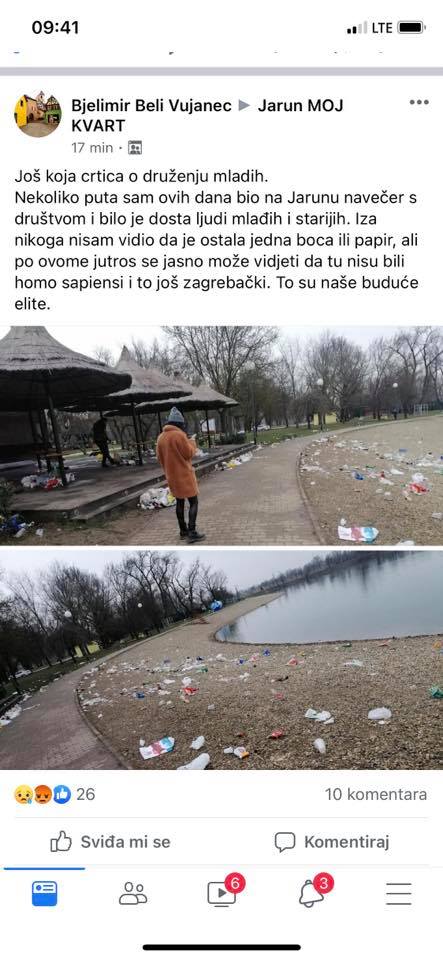
"Police officers did not identify any violations, criminal offenses, or violations of epidemiological measures, i.e., the on-site inspection established that all those gathered adhered to the prescribed measures," the Zagreb Police said. Unfortunately, they left a trail of waste.
Although some media reported that there were several hundred young people, the police say that those gathered were not in larger groups.
"As soon as it is determined that there are no violations of epidemiological measures, it means that the number is not higher than allowed," they explained.
After 8 pm and shortly after midnight, the Zagreb Polic also had reports of a gathering at the Croatian National Theater. Still, an on-site inspection also established that everyone adhered to the prescribed measures. You can see photos of the Jarun party and the gathering at the Croatian National Theater at Jutarnji List HERE.
Earlier, on Friday night, several young people gathered at the Stjepan Radić Student Dormitory. During this procedure, the police confirmed that they verbally called on everyone present to respect epidemiological measures and that they should disperse, which they did.
To read more about lifestyle in Croatia, follow TCN's dedicated page.
Jutarnji List: Croatian Cafes Open on Monday 15 February (and Gyms too)?
February 2, 2021 – The wait is over! In less than two weeks, Croatian cafes and gyms will open, if infection numbers continue on their current downward trajectory
With the spring season just around the corner, people will soon be able to once again enjoy coffee on the sun-filled daytime terraces of Croatian cafes. If Coronavirus infection numbers continue on their current downward trajectory, Croatian cafes and gyms will open on Monday 15 February. All businesses will still have to operate under strict epidemiological measures.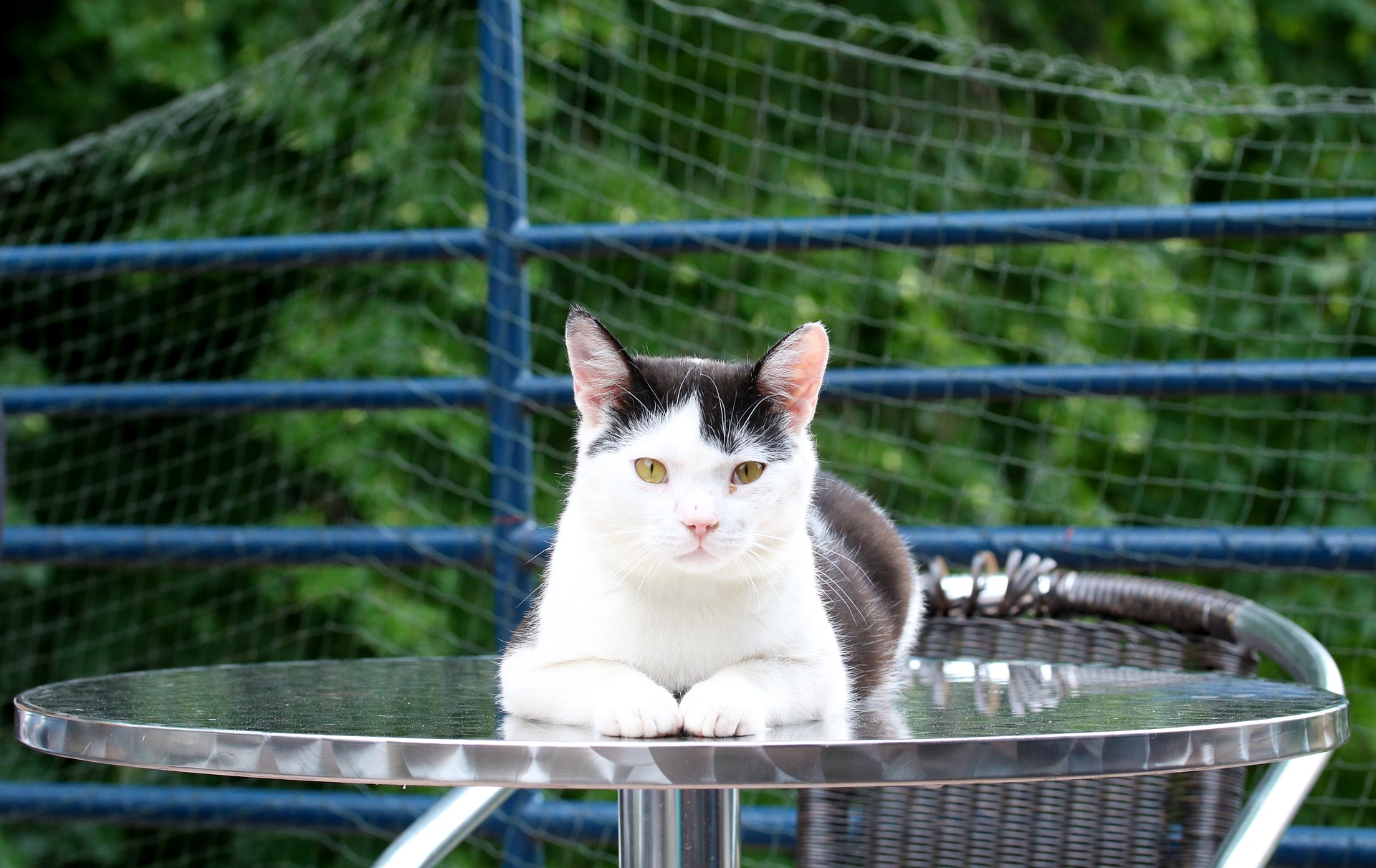
Deputy Prime Minister and the Chief of Staff, Davor Božinović, spoke about the forthcoming concessions on Croatian cafes and gyms, but a fuller picture of how the concessions will actually look was discovered unofficially by Croatian daily Jutarnji List. It was published in the evening of Monday 1st February 2021. The good news soon travelled across Croatia. It will come as a great relief to many independent business owners who have not been allowed to operate.
Business owners have been increasingly on edge over recent weeks, with protest openings of Croatian cafes and gyms threatened to take place in defiance of the current ban on operations (indeed, some did). Owners of Croatian cafes were particularly irked by the seeming inconsistencies in current measures – fast food outlets, gas service stations and bakeries were all permitted to sell coffee to go. People took advantage of this and thereafter congregated on the streets outside such businesses to enjoy their drinks. But, Croatian cafes were still not permitted to service people wishing to drink on outside terraces in almost exactly the same manner.
Monday 15 February has long been announced as the next review date for the imposed Coronavirus measures. But, until now, nobody was certain in which way – if any – measures would be relaxed.
Under unofficial plans, from Monday 15 February Croatian cafes will be able to serve coffee and drinks to be consumed on outside terraces, with strict epidemiological guidelines in place.
Croatian cafes and gyms opening on 15 February will be conditional on a continued downturn in infection numbers and the absence of new Coronavirus strains appearing in Croatia
The re-opening of Croatian cafes and gyms is wholly dependent not only on the continuing downturn in numbers of infected but also on the condition that new strains of Coronavirus - specifically those first detected in the UK and South Africa - do not appear in Croatia between now and then.
"If the indicators are good, if the numbers go down, we will certainly not be reluctant to react,” Deputy Prime Minister Davor Božinović said, regarding the 15 February review, “our aim to strike a balance between everything - with an emphasis on health care - has brought us to a position where Croatia has the least stringent measures in the EU."
Coronavirus infection numbers in some other European territories remain at an alarmingly high rate, although a corresponding relaxation in measures for some regions of Italy was similarly announced over recent days. This is the second time since the start of the pandemic that stricter measures imposed by the Croatian government – and a widespread public observance of these measures and other guidelines - have successfully produced the intended results.
Fewer than 100 Patients on Ventilators in Croatia for First Time Since November
February 1, 2021 - The Croatian Civil Protection Headquarters announced there were fewer than 100 patients on ventilators in Croatia, a figure we haven't seen since November 2, 2020.
Jutarnji List reports that in the last 24 hours, 94 new SARS-CoV-2 virus infection cases were recorded, and the number of active cases in Croatia today is 2551, the National Civil Protection Headquarters reported.
Among them, 1288 patients are in hospital, of which 98 are on ventilators.
Twenty-seven people died.
Since February 25, 2020, when the first case of infection was recorded in Croatia, 232,520 people infected with the coronavirus have been documented to date, of whom 5,054 have died, a total of 224,915 have recovered, of which 439 in the last 24 hours.
There are currently 14,303 people in self-isolation.
To date, 1,193,006 people have been tested, of which 1,881 in the last 24 hours.
There hasn't been such a small number of new infections since September 28 last year.
"Today, we had 94 registered new cases and 1881 tested. This week we had a total of 3346 new cases. From January 25, we had 134 new cases out of 2423 tested, the week before 174 new cases out of 2369 tested. From January 19 to 25, we had 3926 cases, and this week we have 11.7 percent fewer new cases than in the week before.
The current incidence is 188.8, the highest is. in Sisak-Moslavina (330.4), and the lowest in Istria (55.1). According to the 14-day incidence rate, Croatia ranks seventh in the EU - Denmark, Cyprus, Hungary, Bulgaria, Finland, and Greece have a lower incidence, and others are higher. The total mortality rate per million people is 1217.7, which puts us in 20th place in the EU," said Krunoslav Capak, director of the CNIPH.
He also spoke about the vaccine.
"41,223 doses were used in health care, 35136 in nursing homes, 1694 in emergency services in Sisak-Moslavina, and the rest for civilians in Sisak-Moslavina County. Regarding side effects, HALMED publishes a list on their website, and by February 1, 430 suspected adverse reactions to Pfizer and 13 suspected for the Moderna vaccine were received. There were 26 allergic reactions to Pfizer, two of which were severe and the others milder. All other side effects related to Pfizer and Moderna are mild," said Capak.
Health Minister Vili Beros said that the curve regarding hospital care is on a downward trend.
"The number of patients on ventilators is below a hundred, and with yesterday's six new it is not as it seems. This is the first time since November 2 that we are under a hundred patients on ventilators," said Beroš.
He also said that the bigger picture should be considered because of the clinical pictures and new strains.
"At the Headquarters, during a daily conversation with epidemiologists, we look at all these elements, we watch the development of events to be ready for all scenarios," he said.
To read more about COVID-19 in Croatia, follow TCN's dedicated page.
Miroslav Tudman, son of Franjo Tudman, has died from Coronavirus
February 1, 2021 – Miroslav Tudman, the first child of Franjo Tudman, died in Zagreb from complications caused by Coronavirus. A scientist and educator who followed a route into politics, he bore a striking resemblance to his father, the first President of Croatia
Miroslav Tudjman, HDZ member of parliament and son of Franjo Tudman, the first President of Croatia, died in the evening of Sunday 31 January 2021 in Zagreb. He was 75 years old.
Miroslav Tudjman had been hospitalized in Zagreb at the beginning of December due to complications caused by Coronavirus. He had been placed on a respirator. He sadly lost his fight for life at the Dr. Fran Mihaljevic Clinic for Infectious Diseases, Zagreb.
Born in Belgrade in 1946, the son of Franjo Tudman and his first wife Ankica Zumbar, Miroslav Tudman moved to Zagreb in 1961. He graduated from the Faculty of Philosophy at the University of Zagreb in 1970 and later became part of the faculty, founding its Institute for Information Studies in 1989.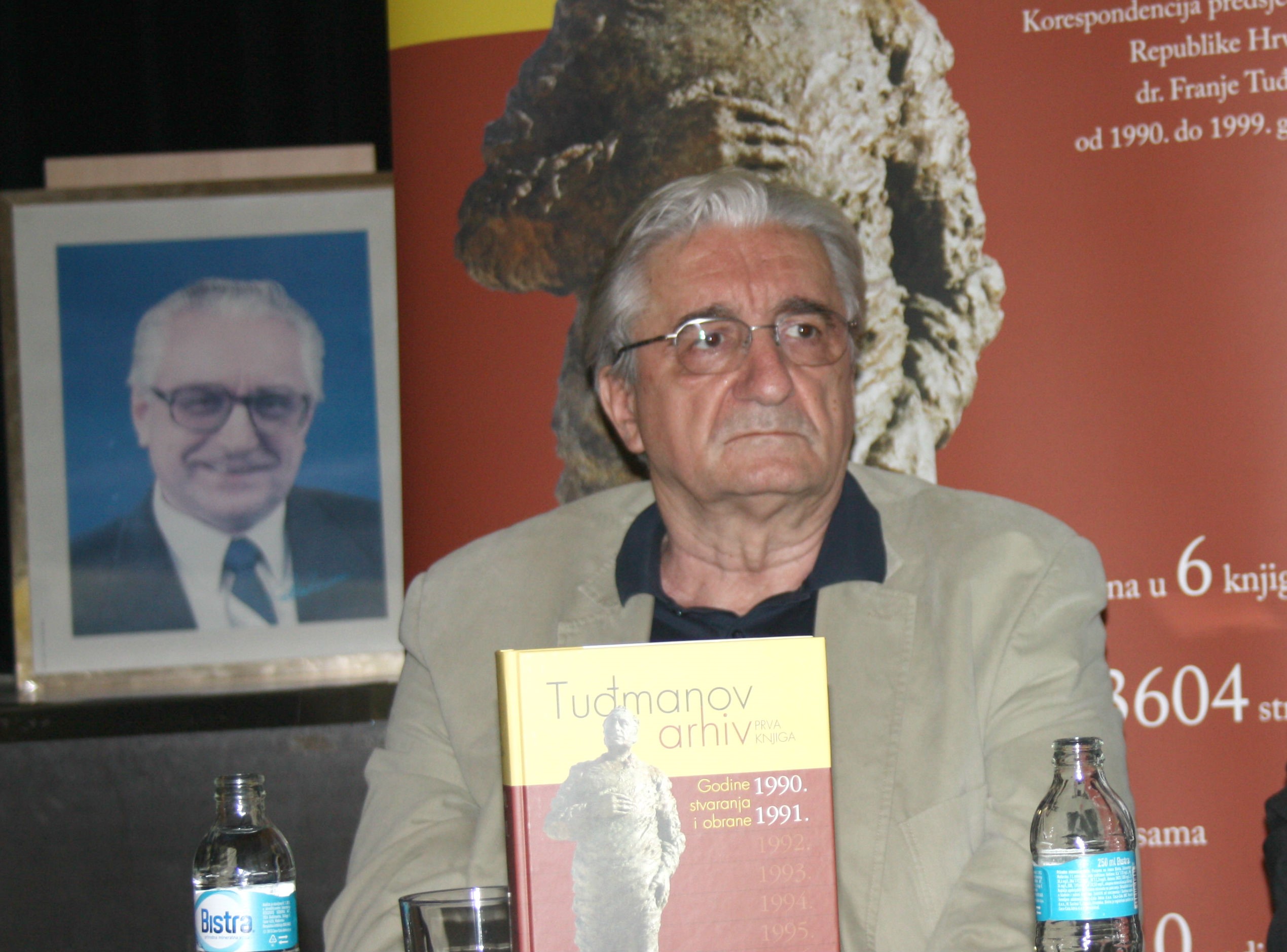 Miroslav Tudman © HDZ
Miroslav Tudman © HDZ
He took part in the Croatian War of Independence and in 1992 Miroslav Tudman became the head of the Centre for Strategic Research. He took up the role as the deputy head of the National Security Office before founding and leading the first Croatian Intelligence Agency (Hrvatska izvještajna služba, HIS). In 1998, Miroslav Tudman became a tenured professor at the Faculty of Philosophy where he had studied.
Miroslav Tudman had dallied with politics since before the war, but it was only after the passing of his father – who died while in office – that they became a more consuming affair for him. He flitted between running as an independent candidate, within fringe parties and as a member of HDZ, the party to which his father belonged. His longest duration with any party was from 2011 and 2021, during which he was a member of HDZ.
At the time of his death, he was a member of the Croatian parliament, head of the Parliamentary Delegation to the NATO Parliamentary Assembly, a member of the Committee on Defence, Internal Policy and National Security, War Veterans and Inter-Parliamentary Cooperation.
Bearing a very close resemblance to his father, Miroslav Tudman was named after Croatian writer Miroslav Krleža who his father adored at the time of his firstborn child.
Prime Minister Andrej Plenković said that he received the news of Miroslav Tudman's death with sadness.
"It is with great sadness that I received the news of the departure of Prof. Miroslav Tudman, PhD, a dear colleague, friend and member of the Croatian Parliament, son of the first Croatian President Franjo Tudman, a prominent politician and a scientist dedicated to protecting national interests," he wrote on Twitter. "In these sad and painful moments, for the Tudman family, I express my sincere condolences and sympathy, on behalf of the government and myself."
For the latest travel info, bookmark our main travel info article, which is updated daily.
Read the Croatian Travel Update in your language - now available in 24 languages
Zagreb Cafes Protest Opening 1st Feb Cancelled, Fines Too Severe
January 31, 2021 – The planned cafes protest in Zagreb and elsewhere, which was due to see 100 facilities open their doors on Monday 1st February in defiance of the current ban on their operations, has been cancelled. Huge fines and the threat of prison are the reason for the climb down. Minister of Economy and Sustainable Development Tomislav Coric appealed to caterers for patience.
The proposed Zagreb cafes protest organised for Monday 1st February has been cancelled. The protest was due to see some catering facilities and gyms open their doors to the public in defiance of the current nationwide ban on operations in such facilities. Around 100 businesses were said to be joining the Zagreb cafes protest.
"Although it has been rumoured that more than 100 caterers in Zagreb will open their facilities on February 1, mostly cafes, or at least start issuing coffee and drinks outside, despite the work ban, it does not seem this will (now) happen, as many have withdrawn after seeing all the consequences that could befall them if they do, " Franz Letica, president of the Zagreb Caterers' Association, told Hina by telephone after the meeting.
On Friday 29 January, the Association of Caterers in Zagreb announced the opening of at least 100 bars and Croatian cafes would open on Monday. An informal meeting of caterers, many who were due to take part in the cafes protest, took place on the afternoon of Saturday 30 January. It seems that at the meeting, plans for the cafes protest fell apart. Caterers had faced the possible punishment of fines - from 20 thousand kuna to 70 thousand kuna - and up to three years in prison for defying the law and opening during the cafes protest.
Petra Odobašić, the owner of a catering facility from Zagreb who attended Saturday's informal meeting, also confirmed to Hina there would be no mass opening on Monday, but that only a dozen caterers would continue with the cafes protest. This handful of establishments were described as being situated mostly in the Dubrava area of Zagreb. Around 80 caterers attended Saturday's informal meeting, mostly from Zagreb, but some from other areas such as Karlovac.
Appearing on Croatian television on Saturday 30 January, Minister of Economy and Sustainable Development Tomislav Coric appealed to caterers for patience.
"We hope there will be (patience)," he said when asked about the proposed act of defiance, "given that we have explained the epidemiological situation we are currently in. We need to think about the season - spring and summer - this will be the time when we can all reap the fruits of responsibility together."


